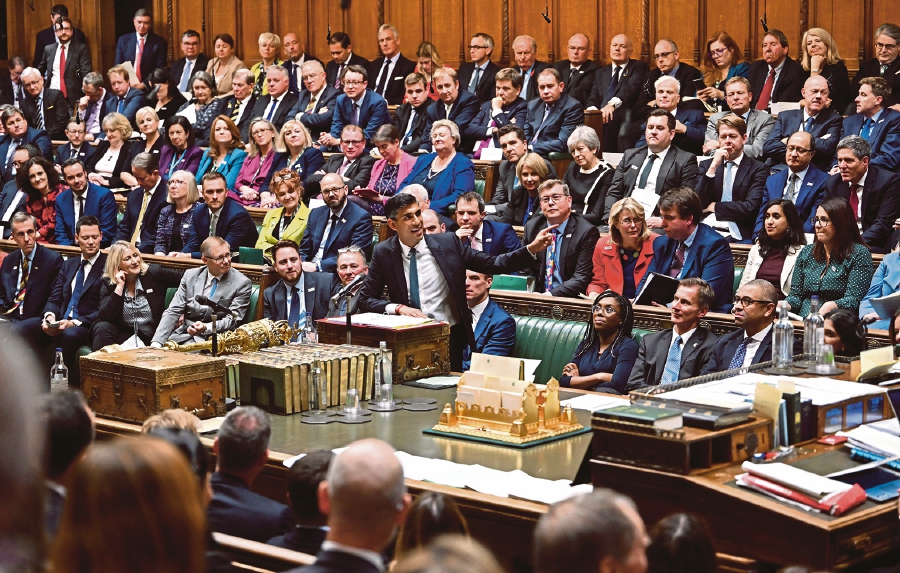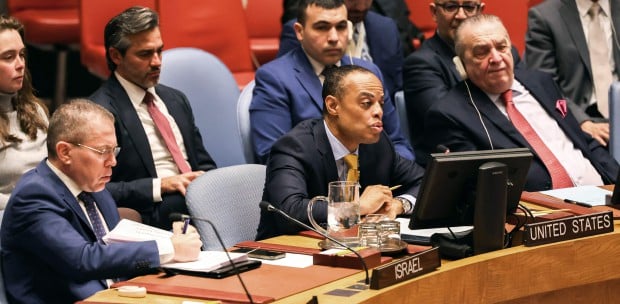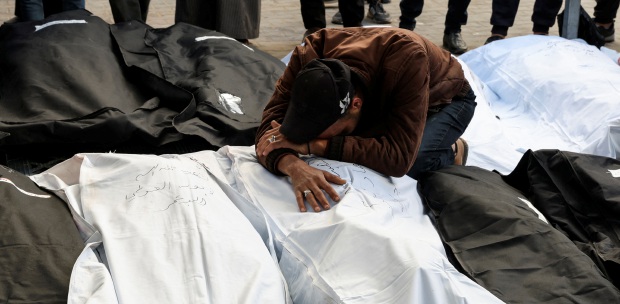It is already difficult for Britons to lend support to the Palestinian cause. Soon it would be almost impossible to do so when "extremism" gets a new and wider definition, from the "vocal or active opposition to British fundamental values" to the "promotion or advancement of an ideology based on violence, hatred or intolerance".
Archbishop of Canterbury Justin Welby and the Archbishop of York Stephen Cottrell warned in a joint statement that "labelling a multifaceted problem as hateful extremism may instead vilify the wrong people and risk more division".
"Crucially", they went on to say, the proposed definition "risks disproportionately targeting Muslim communities, who are already facing rising levels of hatred and abuse."
The new twist to "extremism" comes after British Prime Minister Rishi Sunak, speaking at Downing Street early this month, warned the nation that extremists are "trying to tear us apart".
Interestingly, "the hastily arranged speech", as The Guardian called it, came hours after George Galloway won a by-election in Rochdale on an anti-Israel platform.
Equally interesting is the fact that Sunak's focus on the newfangled extremism is a post-Oct 7 afterthought. Since then, tens of thousands in Britain have taken to streets calling on the government and the international community to end Israel's genocide of Palestinians.
The pretext of the Conservative government of Sunak is to go after extremism, but the real intent is to lend the British government's unconditional support to Israel.
The Zionist regime can do no wrong is as old as the 1917 Balfour Declaration, a document that bought the support of European Jews against London's enemies, the Ottoman Empire.
Is it any surprise that Zionist financiers had a hand in the wording of the declaration? The extended definition of extremism, better described as Islamophobia, is a continuation of an old promise.
Sunak should do better instead of repeating the old blunder of the British governments of the mid-1900s. No one is questioning the right of Britain to decide which country it wants to support.
This is the right of every sovereign nation. But it should not support a nation that is bent on genocide, which is what Israel is doing.
London must not forget the International Court of Justice's ruling: it is plausible that Israel is committing genocide. Israel's genocide against the Palestrinians isn't new. Only that the earlier genocides were not as public as it is now, with every massacre being live streamed. Britain cannot deny this.
Like the rest of the world, it, too, is a witness to this. To continue to support such a regime is to invite a charge of complicity in the Zionist regime's heinous crime. There is no place for genocide in this century in any country.
The Islamophobic definition of extremism is a signal to the Zionist regime that it is okay for it to kill Palestinian women and children. Instead, London should follow the European example of Spain and say no to genocide.
Several ministers of the country have called on the government to take Israel to the International Criminal Court. Even better, follow the example of South Africa and take Israel to the ICJ.
Only then will the world believe that Britain is after the real extremists. Otherwise, as the top two clergymen warned, freedom of speech, right to worship and peaceful protest will be threatened.





